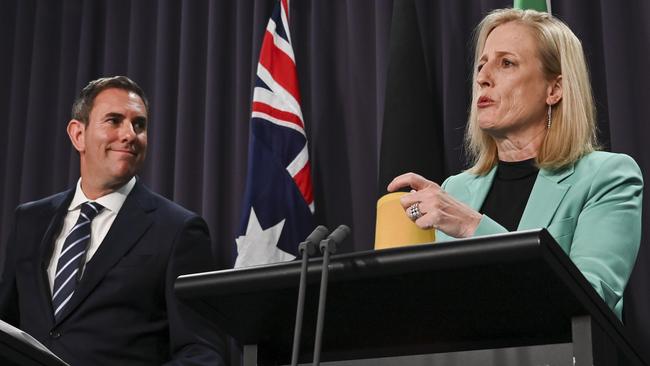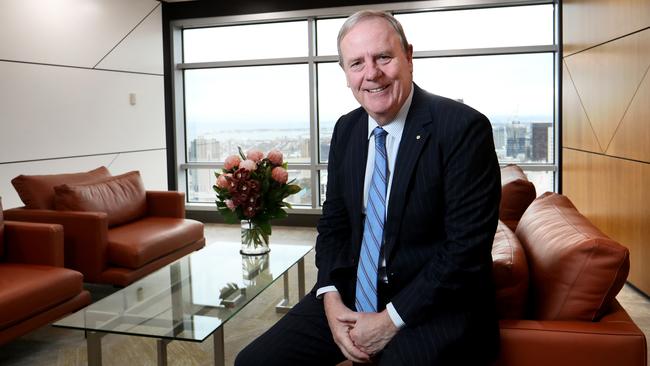
The mandate will be adjusted to fit in with the Labor government’s pet projects – housing, green projects and infrastructure.
It may sound dramatic, but this is the end of the Future Fund. I’m pretty sure David Murray and Peter Costello, former chairs of the fund, will agree. The final outcome is only too clear.
Instead of the chair and the guardian focusing on getting the best returns for taxpayers, the ultimate owners of the fund, they will now be obliged to consider making investments in the preferred government areas.
The claim that “the fund will provide strong returns to the government’s balance sheet while supporting national priorities where it can” is of course a complete crock. If there were these strong returns currently available while supporting national priorities, then these investments would already be made.
But projects in these areas generally require government subsidies to make their economics work. Does it make any sense for the Future Fund to commit funds to projects which only proceed with government backing?
Strictly speaking, the subsidies should be netted out; otherwise, there is just a nonsensical circularity going on.
Take the National Broadband Network as a case in point – a substantial investment in infrastructure which is a preferred government area. Had the Future Fund invested in the NBN, massive losses would have had to be brought to book because the investment is a complete dud. It wouldn’t be able to sell its holdings because there would be no buyers.
When the industry super funds were approached to invest in social housing, only the chair of Cbus put his hand up, while the representatives of the other funds shuffled in their chairs. Everyone knows that investing in social housing won’t generate superior returns – it’s the nature of the investment. It should be undertaken on the government’s own balance sheet.
It’s not clear why Jim Chalmers, who presumably is leading this change in mandate for the Future Fund rather than the hapless Finance Minister, Katy Gallagher, believes this radical change is necessary.
After all, there is the Clean Energy Finance Corporation, the National Reconstruction Fund and Housing Australia. Perhaps it is his big chance to put his loopy ideas about “reinventing capitalism” to become a “values-driven” system into practice.
As for the idea that the chair of the Future Fund and the guardians were fully consulted about this change, well yes. It’s the government calling the shots; any objections would have been duly noted and then overlooked. But at least Chalmers and Gallagher have a sense of humour when they claim that “the government remains committed to the fund’s independence and commercial focus”.

The fact is Labor has never really liked the Future Fund. It was testament to the success of our longest serving treasurer, Costello, who was able to achieve zero net government debt. Those were the days.
Using in part the proceeds of privatisation – note here the opposition of Anthony Albanese’s wing of the Labor Party to privatisation – the Future Fund has grown into an international powerhouse with a reputation for shrewd decision-making. It regularly receives exclusive invitations to participate in profitable deals.
A key here is the independence of the Future Fund from the government of the day: this has been critical to the building of the fund’s reputation.
The parties it deals with know that the chair and the guardians are driven by seeking the best returns, not taking orders from the government of the day.
The total value of the Future Fund currently sits around $230bn. Last financial year, the rate of return on assets was above 9 per cent. Its average rate of return over the fund’s life has been 8.3 per cent per annum. It has a wide spread of assets, both local and overseas, and the returns have beaten most other funds in the market. (I’m sure many readers of The Australian would have been more than happy to park their money in the Future Fund.)
It has been a huge success, decreasing the value of government net debt in a very substantial way. The Future Fund is the commonwealth’s largest single financial asset.
But Chalmers has other ideas. His world view is one in which investments are directed by the government to preferred areas, in part relieving the government of making its own investments. It’s a highway to poor outcomes as returns disappoint and some projects fail altogether.
It might make more sense to simply close the Future Fund, fold the assets into the government’s balance sheet and let the government spend like crazy until all the money’s gone. It’s not far off what is being proposed.







The Treasurer and the Finance Minister are changing the mandate of the Future Fund to “support national priorities”.